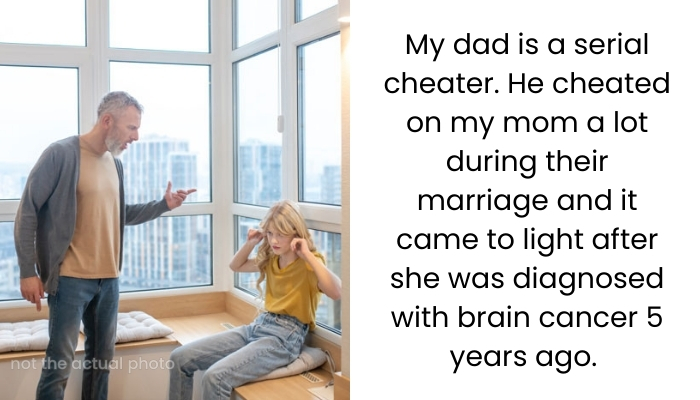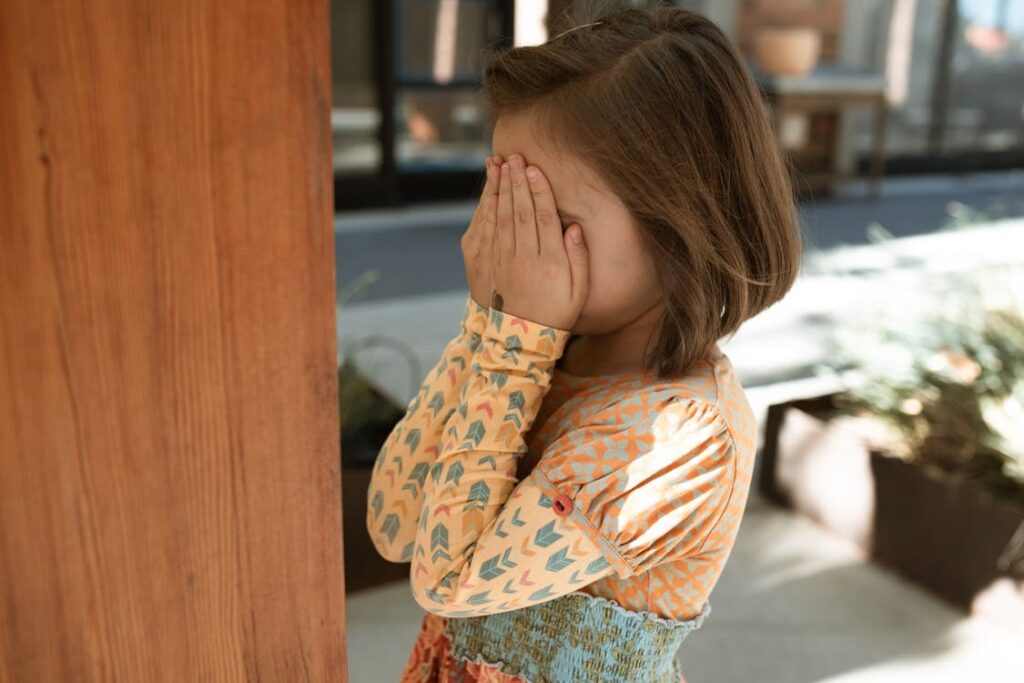“We Weren’t Going To Pretend”: Man Ditches Dying Wife For His Mistress, Is Shocked To Be Exposed
When a couple decides to separate, they often prepare themselves emotionally for a tough journey. However, for children, coping with divorce can feel very different. Kids often go through a lot of confusion, hurt, and anger. The situation can become even harder when a new partner comes into the family, creating challenges common in blended families.
In one powerful story, a teenager shared the deep emotional trauma she experienced. Her father was engaged to the woman he had an affair with while her mother was battling a terminal illness. Even though she and her sister said they did not want to attend the engagement party, their father forced them to come by making it part of their court-ordered visitation time.
At the party, painful emotions erupted. The sisters couldn’t hide their hurt anymore. They openly spoke about their feelings, exposing a lot of unresolved family issues. This heartbreaking situation shows why family counseling and child therapy are so important to help children heal during difficult transitions like divorce and remarriage.
Keep reading to discover how complex family dynamics played out in this real-life case and learn why getting the right emotional support is critical during such challenging times.
Read for more info Reddit
Divorce can be especially hard on children, and emotions can run even higher when infidelity is involved
A teenager shared how she called out her father’s affair at his engagement party with his new partner
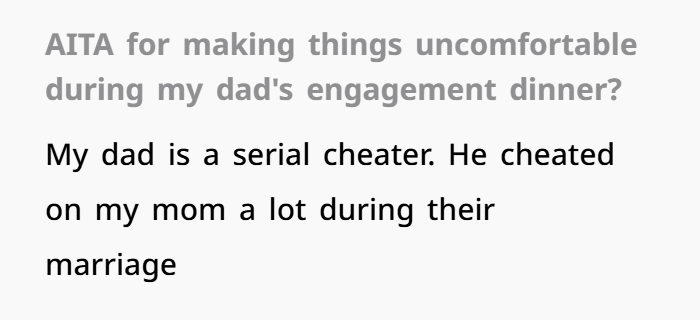
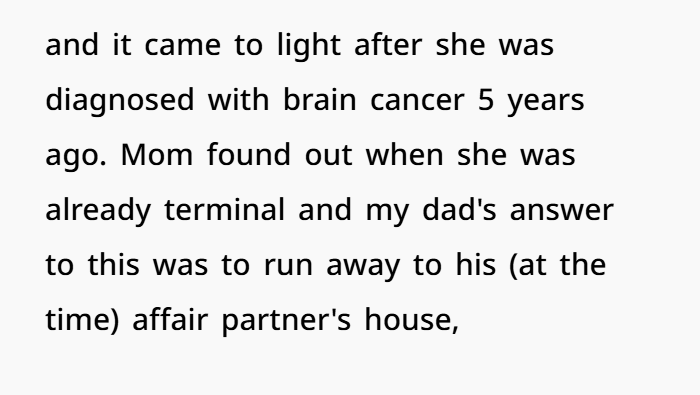
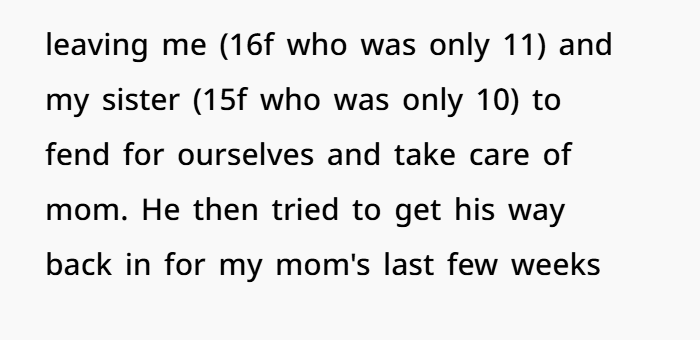
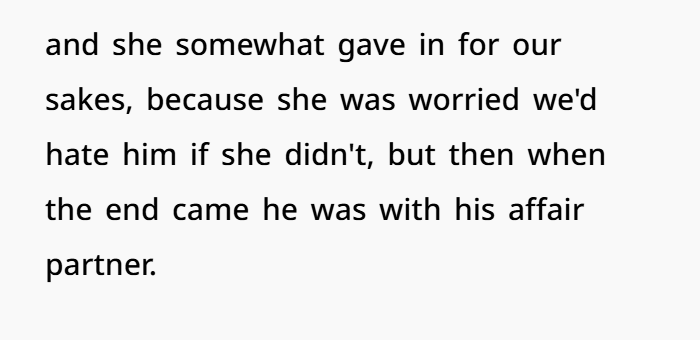

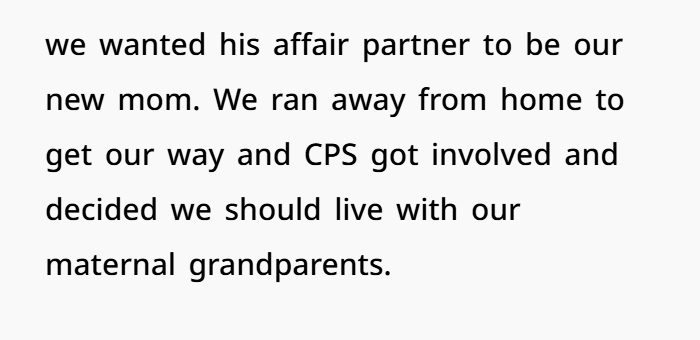
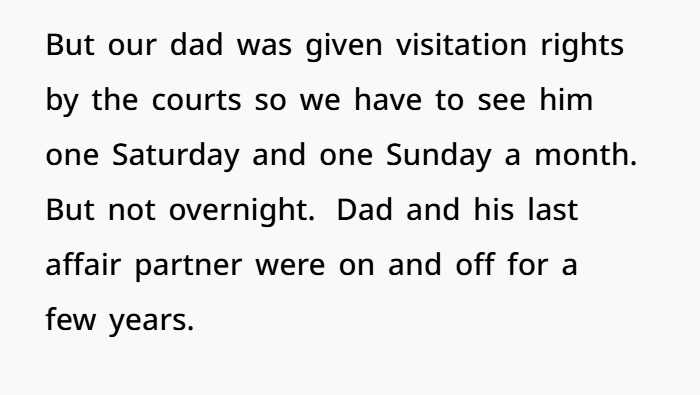
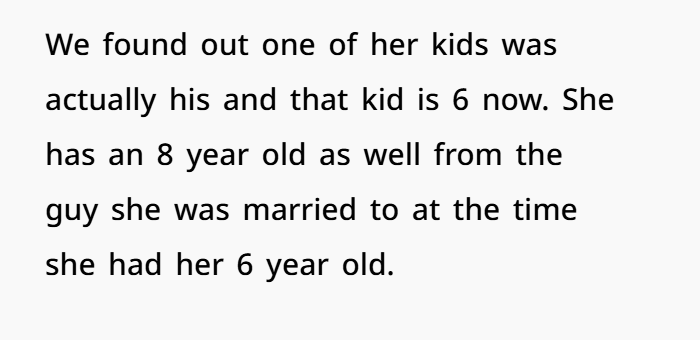
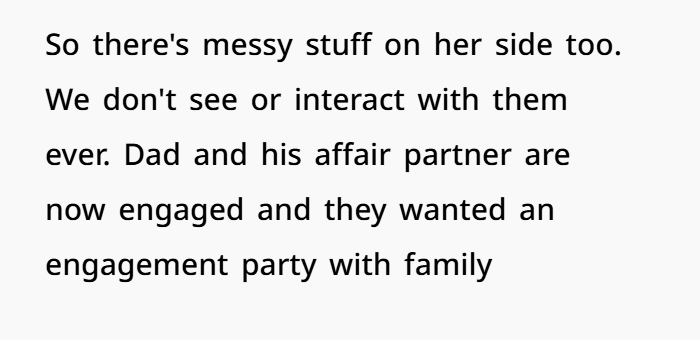
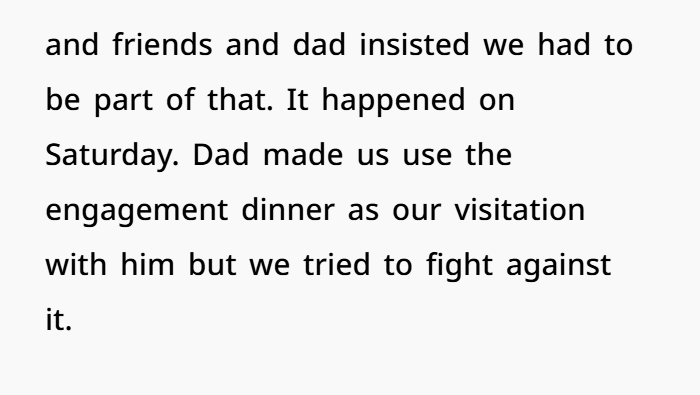
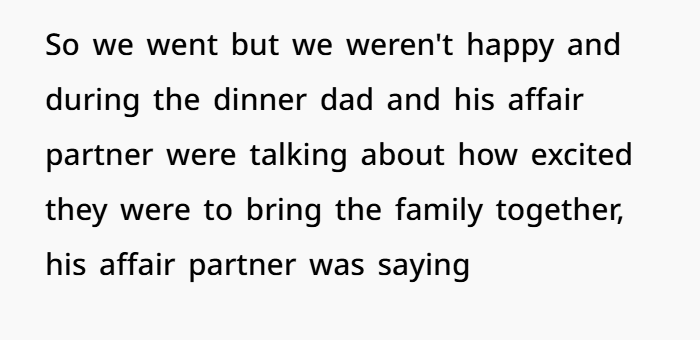
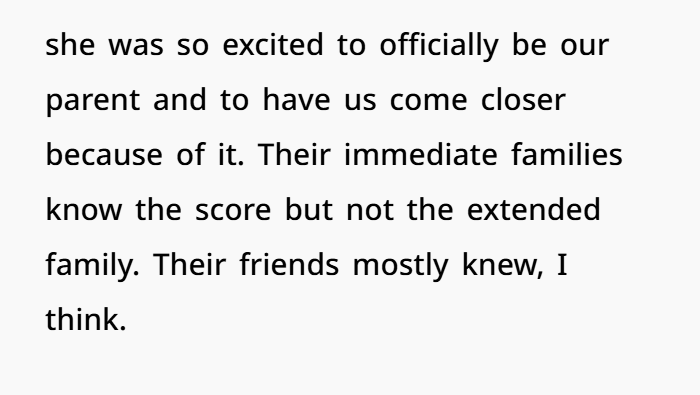

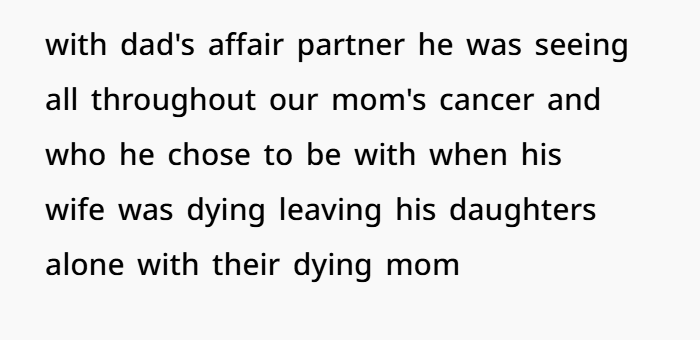
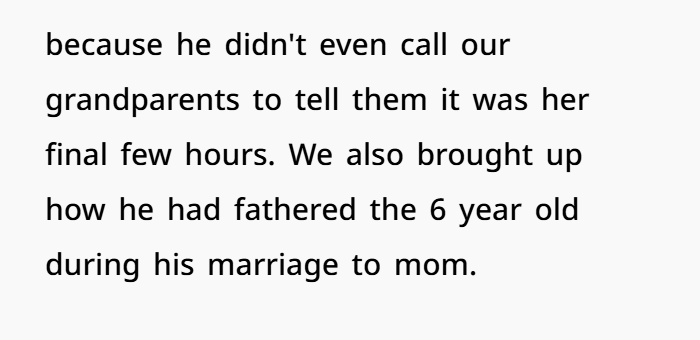
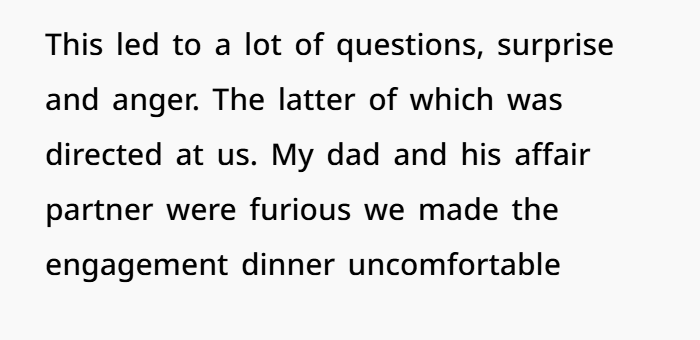
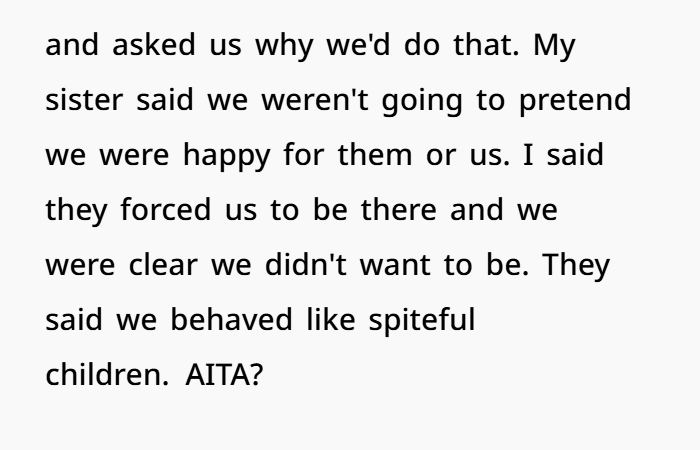
Parents are responsible for supporting their children emotionally—before, during, and after a divorce
Marriage is a beautiful dream for many people. We all hope to find and marry the love of our life. But sometimes, life takes unexpected turns. Even happy couples can slowly grow apart. Over time, they may realize they want different things. This can lead them to think about separating.
People may fall out of love, or they may have different life goals, values, or priorities. Whatever the reason, deciding to separate or get a divorce is never easy. It can be emotionally painful and confusing.
But divorce doesn’t just affect the couple—it affects the entire family. Children often struggle the most. That’s why honest communication with kids is so important. Parents should talk to their children in a loving, calm way to help them understand what’s happening. Reassure them that they are still deeply loved.
Support shouldn’t stop after the separation. When a parent begins dating after divorce, it’s best to move slowly. Introducing a new partner to children should be done with care. Every family is different, so it’s important to see how your child is adjusting before making more changes.
Let kids settle into their new routines first. When the time feels right, gently explain the new relationship. Don’t rush them. Let them ask questions and express how they feel.
Family and divorce expert Ann Gold Buscho, Ph.D., shares helpful advice: if you take your time and think about your children’s needs, your family can grow in a healthy way. She says, “When you are successful, you will have years to enjoy your expanded family.”
This is why co-parenting tips, child therapy, and family counseling can be so helpful. They support both parents and kids through emotional transitions and help build a strong, healthy future.
It’s essential for parents to give their children time to feel comfortable with a new partner
Building a strong relationship between your kids and a new partner takes the right timing, patience, and honesty. When done with care, it can lead to trust and even a warm bond. One helpful co-parenting strategy is to reassure your children that the new person doesn’t change how much you love them or your role in their lives.
When you begin to introduce someone new, ask your children how they feel. Listening to their emotions makes them feel secure, respected, and understood. This emotional support helps make the transition into a blended family smoother.
But if you move too fast, it can do more harm than good. Kids may feel confused, anxious, or even resentful if they’re not ready. That’s why it’s so important to go slowly, check in often, and keep communication open. These steps can help your child adjust in a healthy way and build stronger family bonds.
In real-life situations, like the one mentioned earlier, the father’s actions didn’t reflect his children’s emotional needs. Forcing them to attend an engagement party with someone they weren’t ready to accept—especially someone linked to a painful past—made the kids feel ignored and undervalued. Naturally, this led to frustration and emotional outbursts.
Navigating divorce with kids is never simple. But with compassion, communication, and the right support—like family counseling or child therapy—parents can help children heal and move forward in a positive way.
What are your thoughts on this kind of situation? Have you faced something similar? Share your experience in the comments below.
The teen also responded to follow-up questions about her visitation rights with her father






